
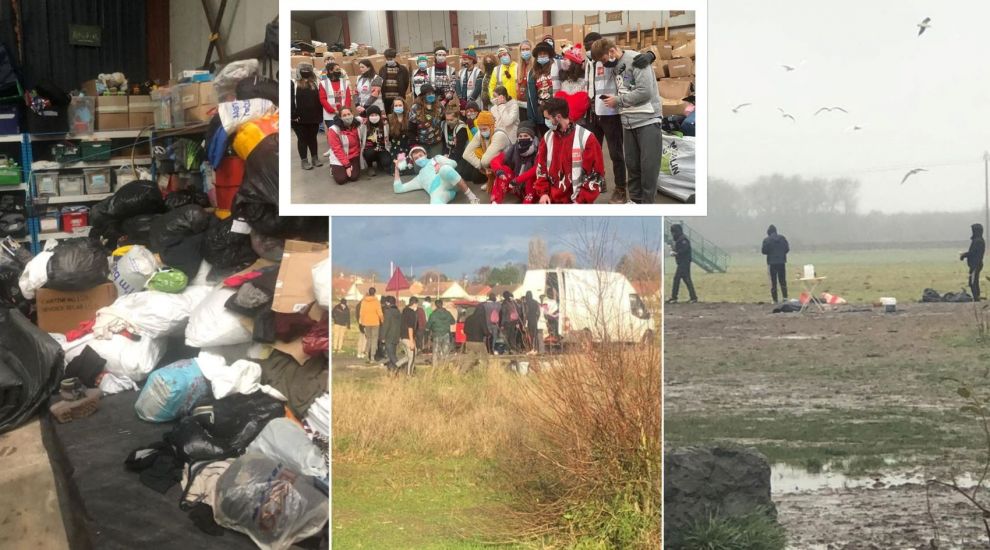

Islanders who spent Christmas helping refugees in camps across France have shared a series of eye-opening and moving dispatches from the ground - spanning makeshift barbershops, a refugee child who gave back her beloved Christmas gift, and bonding with a young man over football and funny TikToks.
Joe Fry, her son Joseph, and Alcindo Pinto have spent over two weeks on the French Coast and in Paris, helping refugees across the country with donations and support.
Back in November, Joe and Alcindo put on a ‘Drive By, Drop Off, Donate’ event for islanders to donate any belongings they had to go with them on their trip.
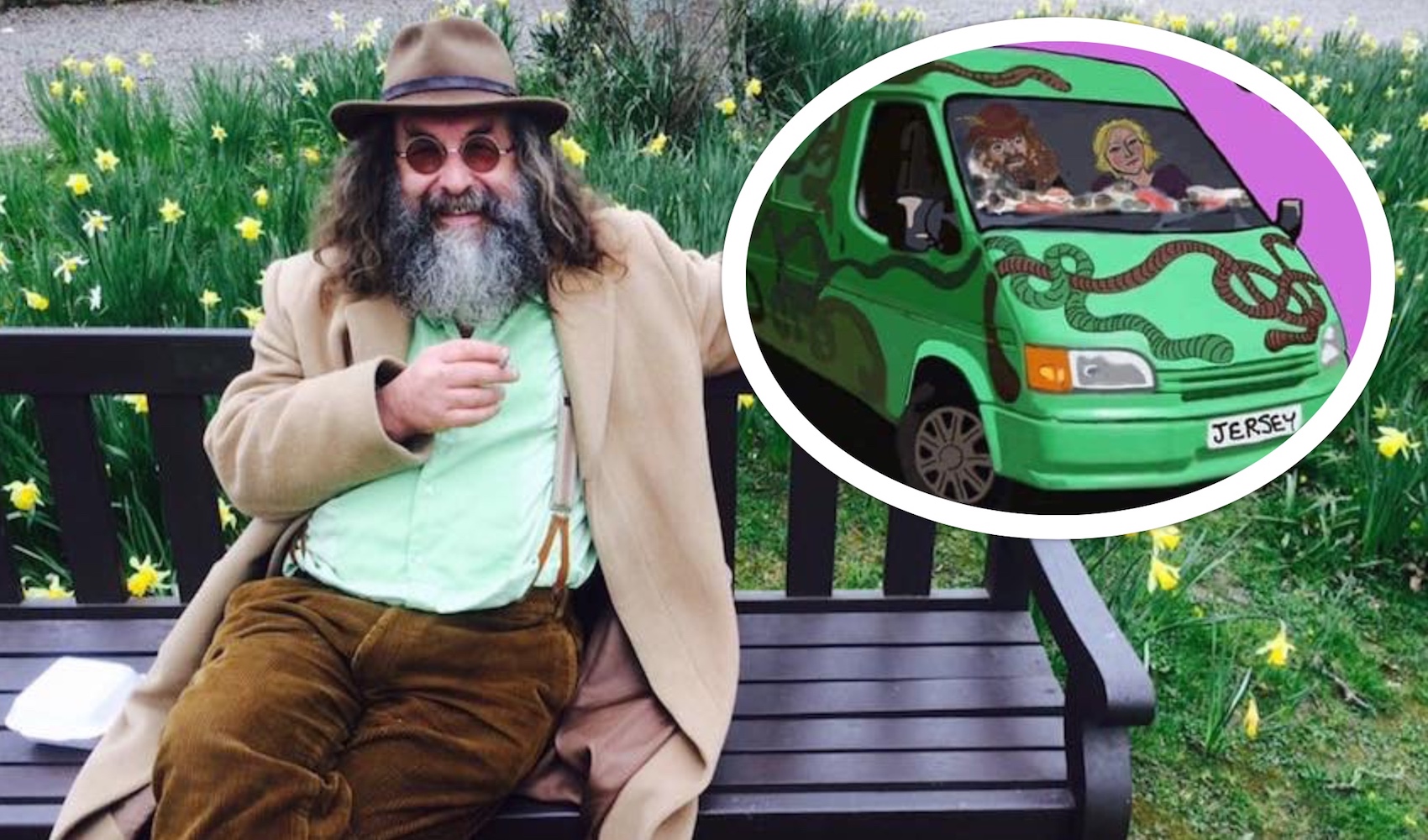
Pictured: Alcindo and Joe had previously fundraised through both GoFundMe and from items donated by islanders.
As well as a great turnout from locals wanting to donate goods to the cause, their accompanying GoFundMe passed their £5,000 target enabling them to make the journey.
Joe and Alcindo shared their first-hand insights on their journey and experiences each day with Express....
After a number of delays, the group managed to make it off the island on 18 December. Working from a warehouse in Calais and staying at accommodation 44km from that base, they spent the week visiting different camps around the Northern coastal area, with one of the first stops being Dunkirk.
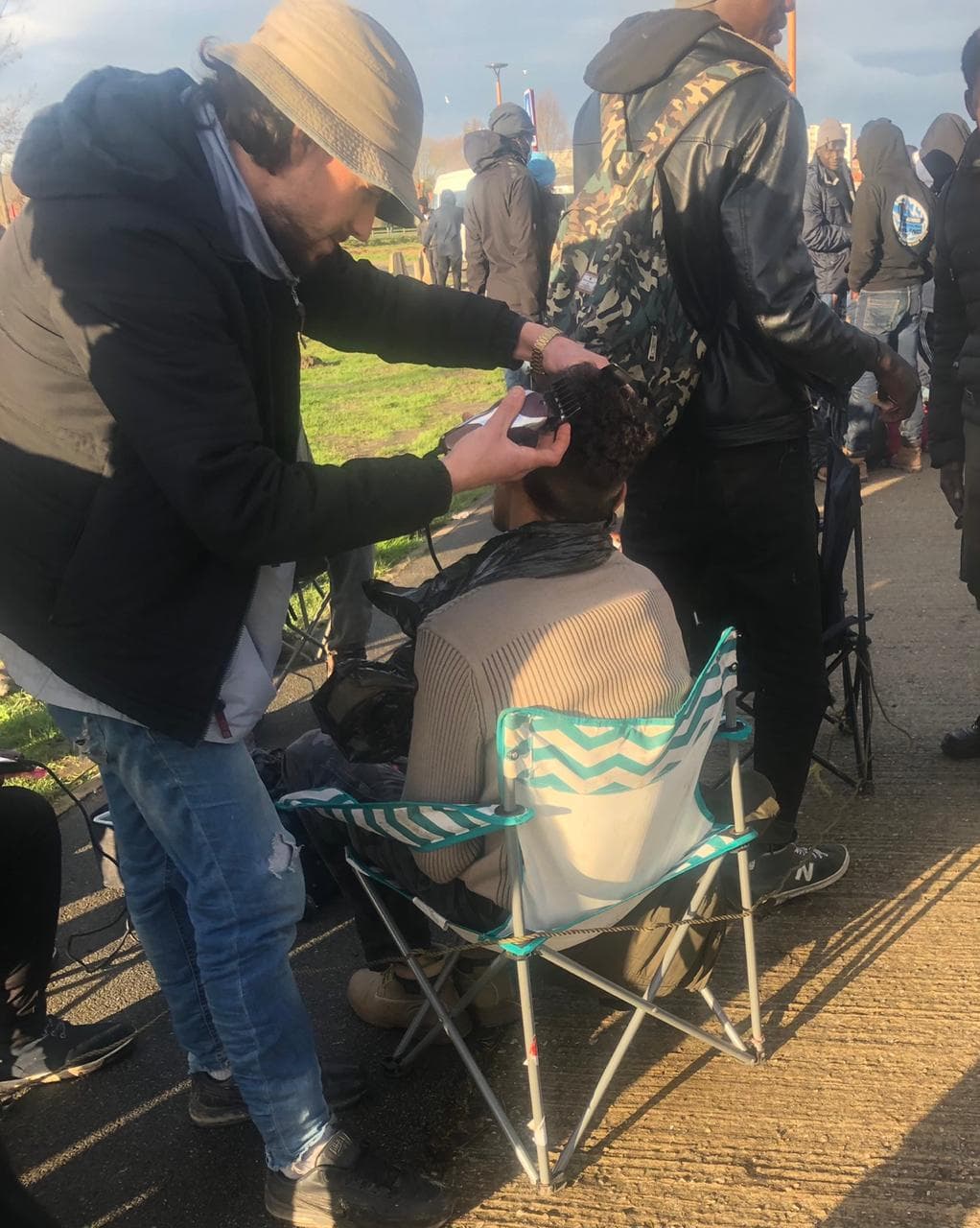
Pictured: At a site around Calais named 'The Hospital', a hair clipping station was put in place, organised by the men who had professional hairdressing experience.
Describing the scene, Joe said: “There are a few hundred men there, but we also saw a young women and two children: a boy about six and a little girl about four, both from Afghan Kurd or from Iraq or Iran. That’s the ethnic population of the Dunkirk camp.“
Alcindo explained that the reason for the predominantly male population of the camps is partly to do with the fact that during the winter, the French Government tend to house a number of the women and children in accommodation, leaving the bulk of the men in the camps.
Speaking about their work in the Dunkirk site, Joe spoke of how they “gave out winter coats, played cricket, charged phones and gave out warm drinks, biscuits and cakes", adding that the men also were given access to clippers.
One of the key things that struck Joe during her time at the camp was just how well-kept the men were trying to stay in light of their circumstances.
“Despite the filth and constant evictions, the young men still wanted to keep themselves looking good,” Joe said. “The West has robbed them of a country but it has yet to rob them of their dignity and integrity… I hope the despair doesn’t take that too.”
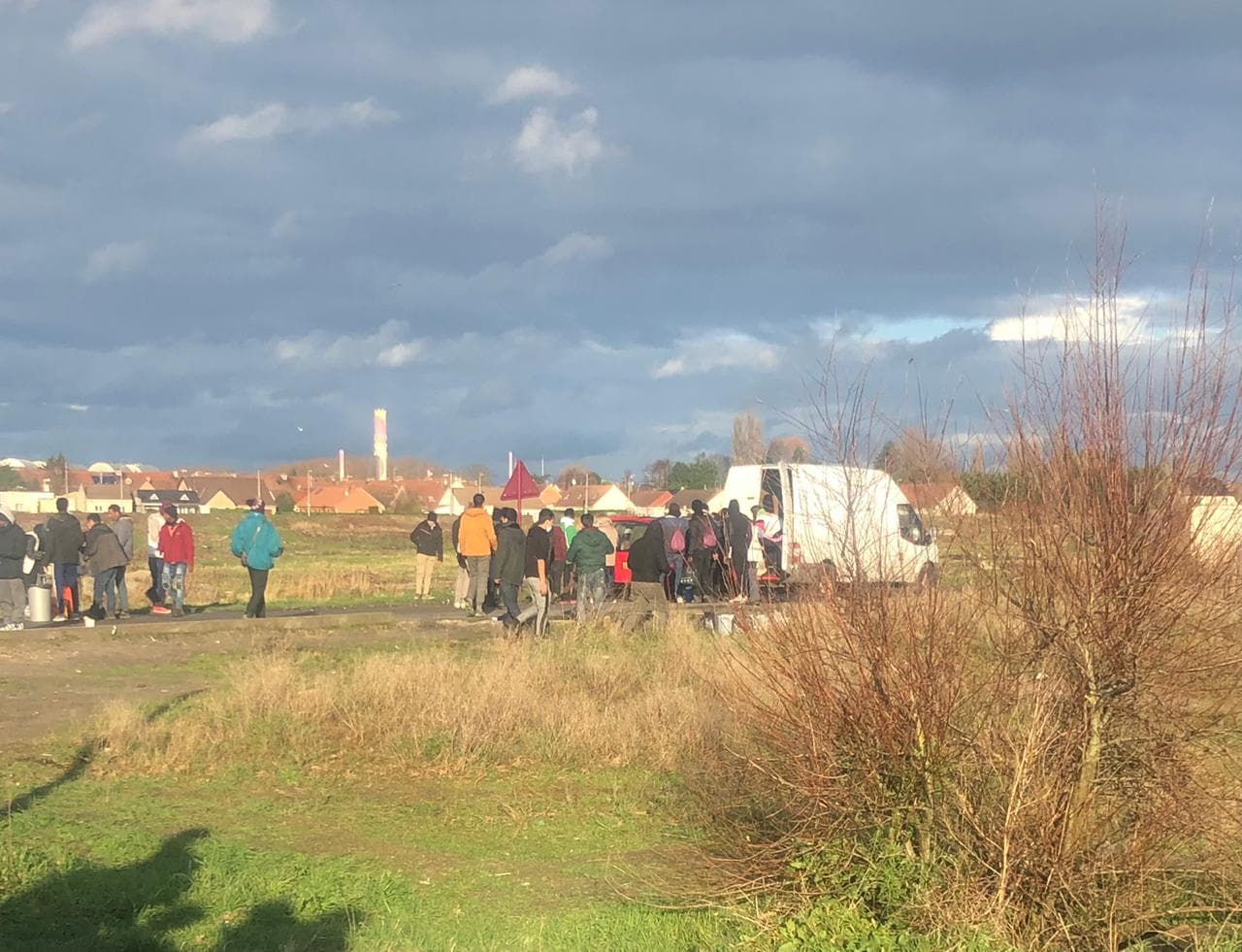
Pictured: “There were people turning up to take them for showers, the Red Cross were there to heal their cuts, but no one was there to help heal their souls.”
She went on to explain just how much of a life many had lost in the move: “Some had just arrived, others had been there for three years just waiting to be offered settled status.
“We met teachers, doctors, lawyers, and people who had their own businesses before geo-politics, famine and genocide forced them to leave.”
The group were later informed the following day that around 100 camps in Dunkirk were taken down by French police. Joe remarked shortly after: “Tomorrow we’ll go and take new tents, and in a few days the police will take them... [The police’s actions are] meant to break [the refugees] down so they’ll volunteer to go home.”
Back at the Care4Calais warehouse, Alcindo described a “focused” atmosphere, explaining that “you’ve got stuff coming in and coming out all the time, so to keep it organised and tidy, it’s quite a lot of work", explaining that there were “mountains” of tents, clothes and sleeping bags.
WATCH: A tour around the warehouse.
The work, which would go on from 09:30-17:00 daily, involved sorting the piles of items to ascertain where they would be going, unpacking and repackaging the various goods.
They split them into those that would be useful for the refugees on the camp, those for women and children that could be shipped off to Syria, and anything that was good but that couldn’t be used for either purpose to be sent to the Shelter charity.
Tasks also included sorting shoes for the refugees, with the prerequisite being they would have to be suitable for running for a lorry, as well as ensuring clothes remained dark or muted so as not to stand out.
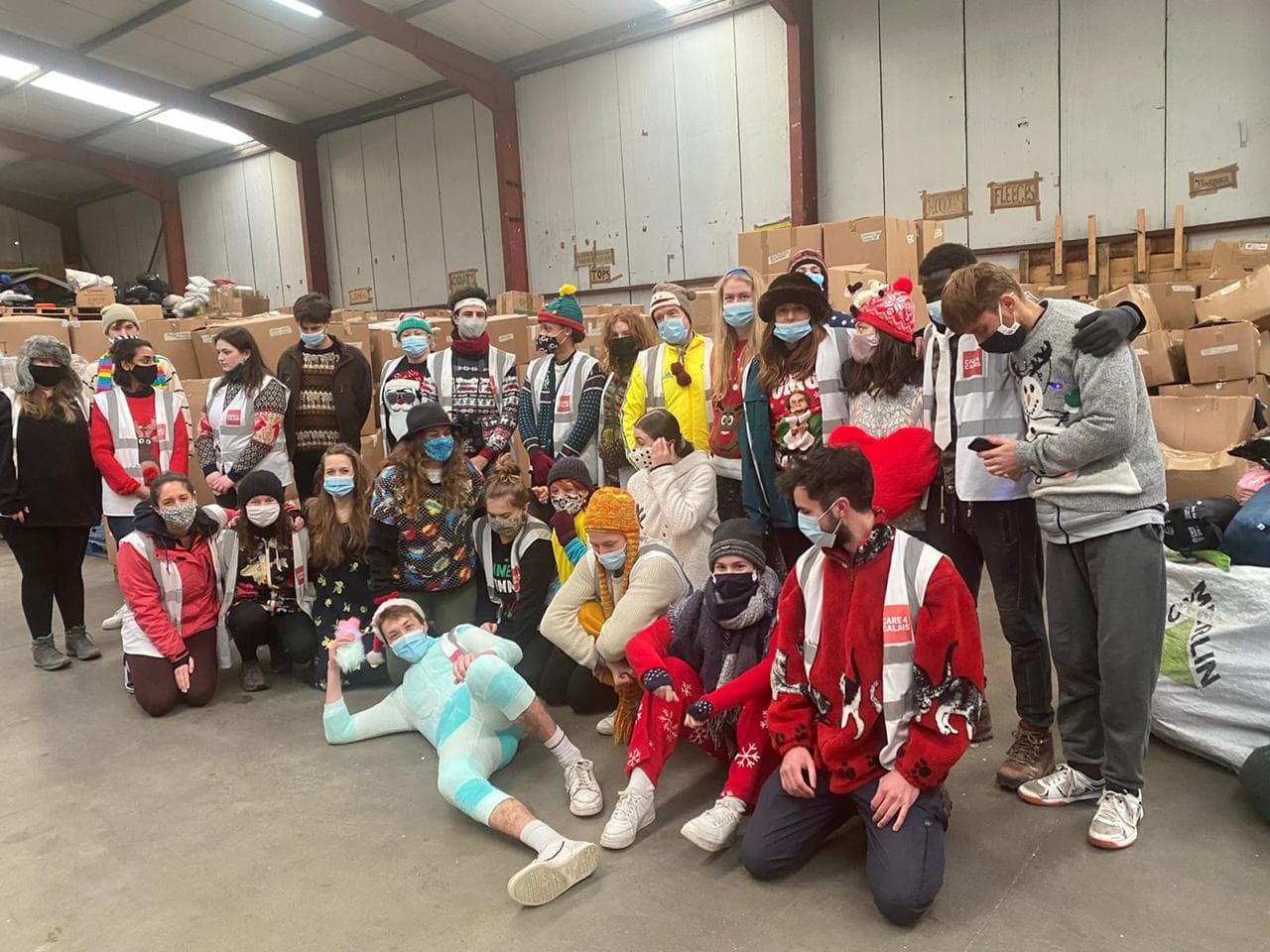
Pictured: Some of the warehouses' long-term staff come from across the continents, spanning from Northern Ireland and England to America and Florence.
Around Christmas, gifts were also on the cards – but giving them out was an eye-opener to Alcindo about how resourceful and mindful of what they can carry the refugees had to be, even from a young age.
“There was one girl who got a teddy bear,” he said, “and she gave it a few hugs and really liked it, then gave it back. It struck me that if you’re living in a soggy tent, then a fluffy bear isn’t going to stay a fluffy bear for long, it’s going to become a rag for wiping up all the mud.
“Another one got a load of colouring pencils... I was thinking dry and clean paper wasn’t going to be something they have an awful lot of, or for very long either, so you’ve got to take their circumstances into account.”
Although Alcindo explained that the French Government had a number of agents feeding the refugees too, he noted that while "they have to do some stuff, they don't want to do it too much because they reckon it's going to encourage them.
"But I don't think you can discourage these people - often they've walked thousands of miles across countries and continents.”
This was echoed by Joe, whose description of men in an Eritrean camp living under tarpaulins they’d attached to fences illustrated just how dire the conditions they live in daily already are.
Throughout the weeks, as the group travelled across the camps, the stories of resilience and people simply trying to live a normal life despite the odds kept coming.
These included two workers at the Warehouse who had walked from Afghanistan and Syria respectively, an Iraqi translator for America who spoke five languages but who had to flee for his life when America pulled out of the country, and a 25=year-old, who had fled indefinite conscription in Eritrea.
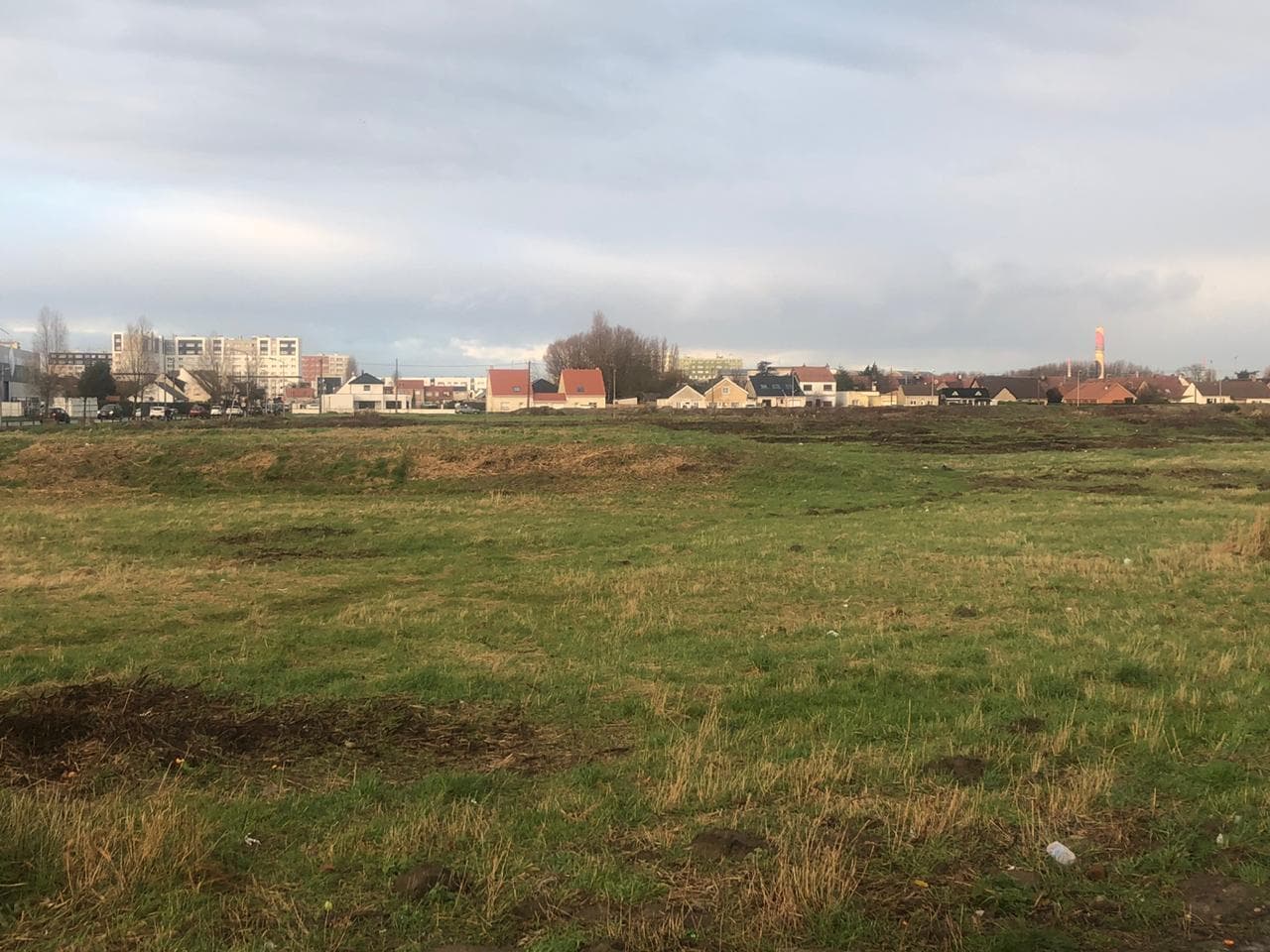
Pictured: Joe explained that this site used to be a dense woodland, but was destroyed by the Government after a community had settled in it.
One particular story that stood out was that of a 23-year-old man from Afghanistan who briefly stayed with the group in their accommodation over Christmas.
Describing the time they spent together, Joe said: “We’ve been watching football (his favourite team is Liverpool), TikToks (he loves funny ones of babies), and documentaries on Afghanistan - he’s been teaching me about his country.
“He’s also been getting phone calls from his friends and family through the day. His brother called him from Afghanistan, he’s in the army fighting the Taliban; he was there in the barracks with a huge, huge gun…
“I’m terrified for him, but for now we watch babies falling over on TikTok, and attempt broken dialogue on Christiano Ronaldo’s performance in the last season, and hope the world turns and his like won’t have to risk their lives to try to live.”
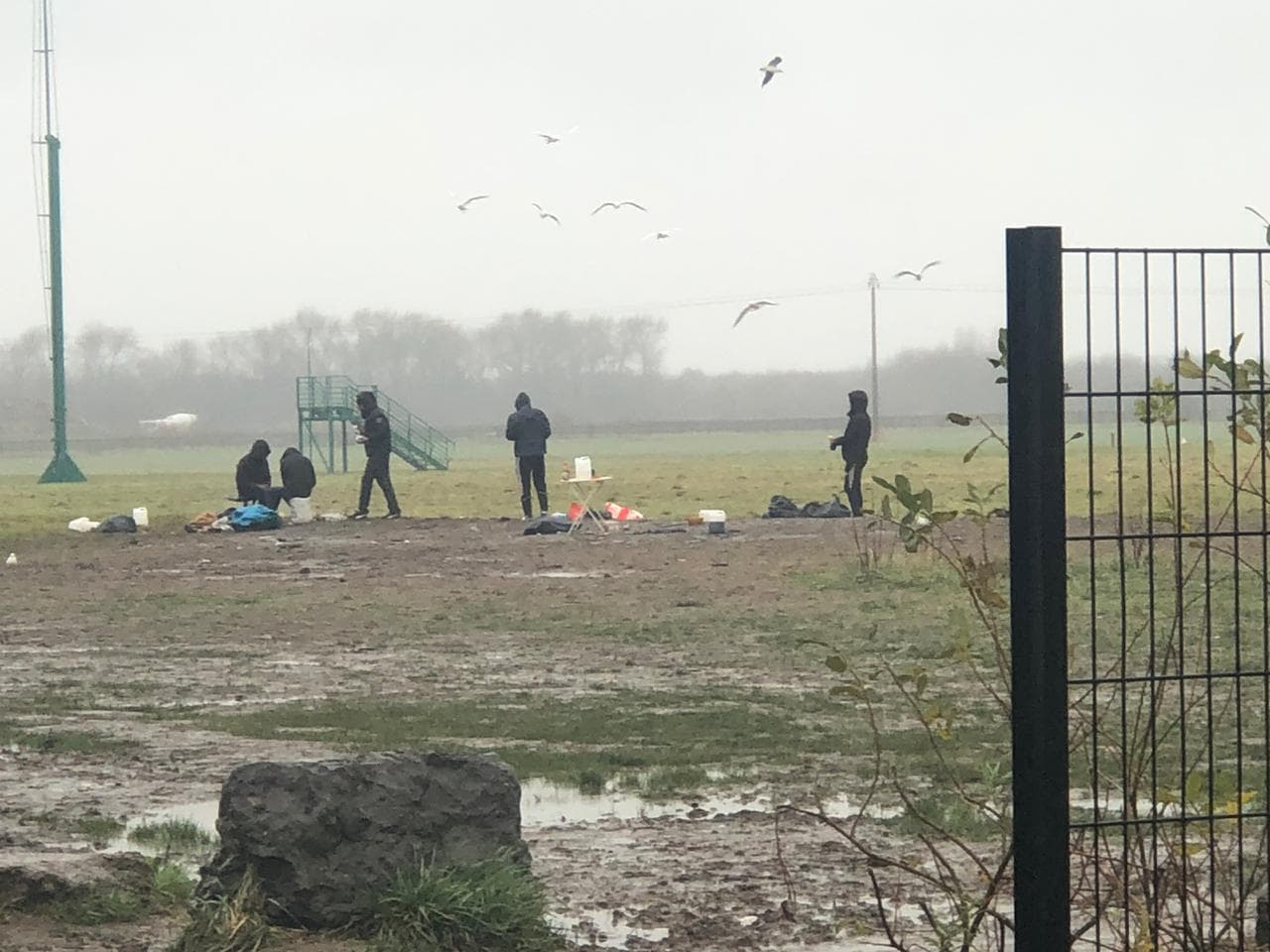
Pictured: The Hospital site was described as a "depressing, barren camp."
She added that he would be attempting to make his way to England soon, either by lorry or boat or whatever means necessary – this is an aspiration among many of the men, who both Alcindo and Joe have said view England as a hopeful place for them where they can start life afresh away from life on the camps.
However, she expressed her fears around her friend’s safety in doing so, adding: “I’m wondering if I’ll see his picture on Facebook in the next few weeks on a news article about another failed attempt and a tragedy, with people posting laughing emojis at the news of his last day on earth and cold lonely death.
“He’s a year older than my son, he cooks amazing food and cuts hair like a pro, he’s resilient and kind, funny and determined, and the world’s a better place with him in it.”
Eventually, the group moved onto Paris, bringing with them the items for women and families that weren’t as needed in the camps around Calais, along with toiletries and socks, and tents for those trying to survive in the streets.
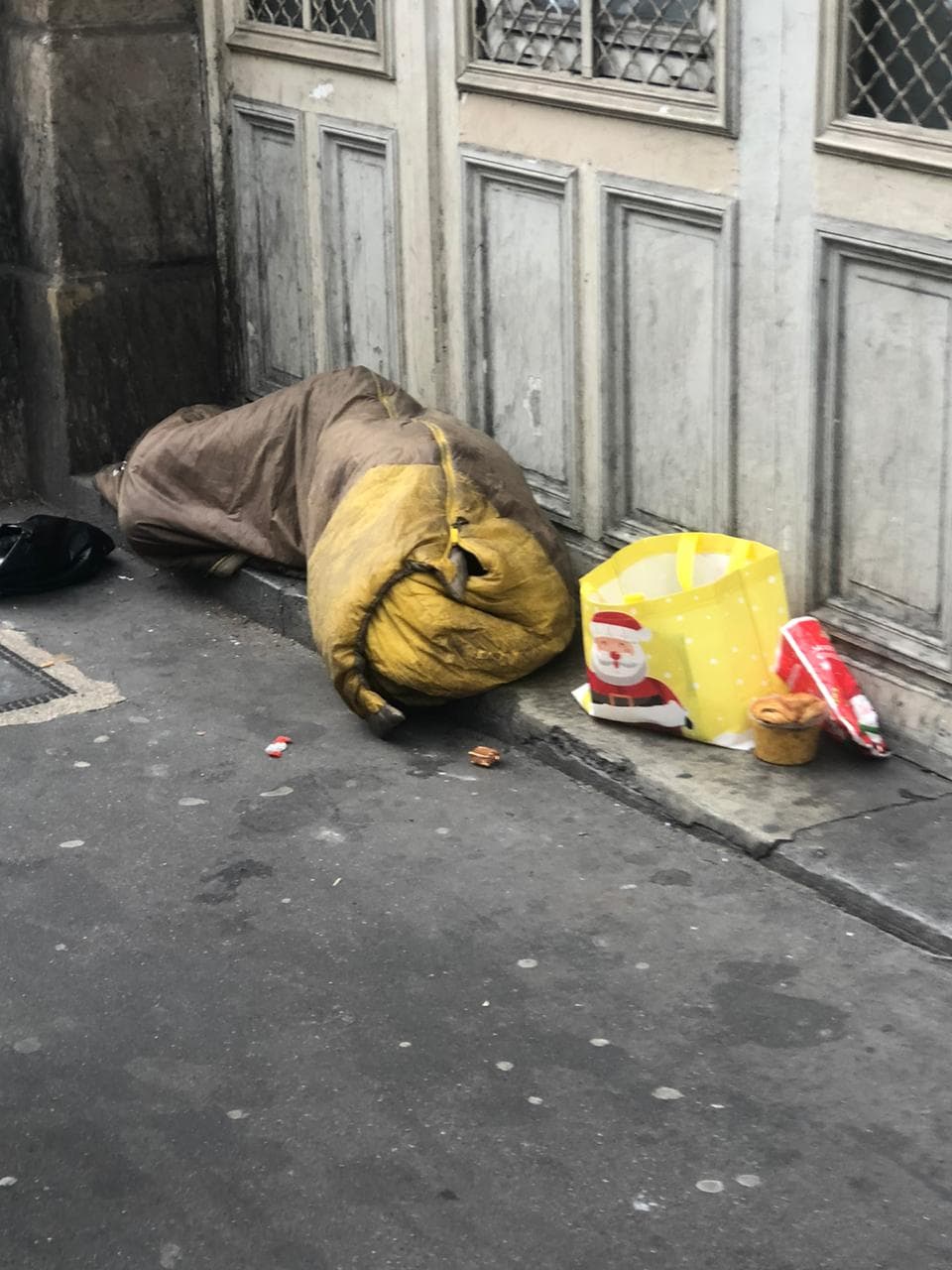
Pictured: Joe described Paris as having lots of sights such as this Sudanese refugee sleeping on the pavement.
The poverty they saw in the camps was still laid bare in the city, with Joe recounting plastic attached to railings indicating where people were trying to make some form of shelter, beggars in the streets, and tents in doorways – “broken souls in parks huddling under too thin blankets.”
Despite some setbacks, including their contact in Paris coming down with covid before they could meet her, and their van being towed, they managed to get the items to their destinations, including gifting two Romany children boxes of clothes who previously did not even have coats.
It also gave time for some reflection on everything that they had experienced in the camps, with Joe stating that: “The resilience of these men astounds me - to want to live normally when the world doesn’t want you is humbling.
“They dance and sing and live despite being in a world that would rather they weren’t in it.”
For Joe, this is only one step in a continuing drive to get Jersey to support similar charities overseas and on a more local level, having already helped raise money to build a safe feeding station and playground for children in Uganda, 'Noam's Nest'.
Describing her hopes to set up a charity called ‘Compassion Isn’t Limited', she said it would represent her belief that charity should have no limits like race or boundaries, as well as expressing that we can all do more.
She has also begun a fundraiser for another to help overseas under the same title HERE.
WATCH: A look at the "mountain" of donations the volunteers have to get through at the Calais warehouse.
A small anecdote from Alcindo perhaps best sums up that belief in compassion, coming from when he was helping some refugees charge their phones.
“It was p**sing down with rain, it was bloody freezing,” he explained. “We had a generator plugged into a charging bank and we were holding a tarpaulin over them so they wouldn’t get wet.”
However, his PPE was causing a problem: “It’s really hard for me wearing masks because I have a beard and wear glasses, which is a terrible combination if you want to wear a mask; it steams my glasses up, and gets water on the inside.
“So I was stood there holding this tarpaulin, and this Sudanese guy just came up to me, he was talking a bit and smiling – and then he got a tiny little tissue and he wiped all the water off my glasses.
"It was so sweet.”
Comments
Comments on this story express the views of the commentator only, not Bailiwick Publishing. We are unable to guarantee the accuracy of any of those comments.